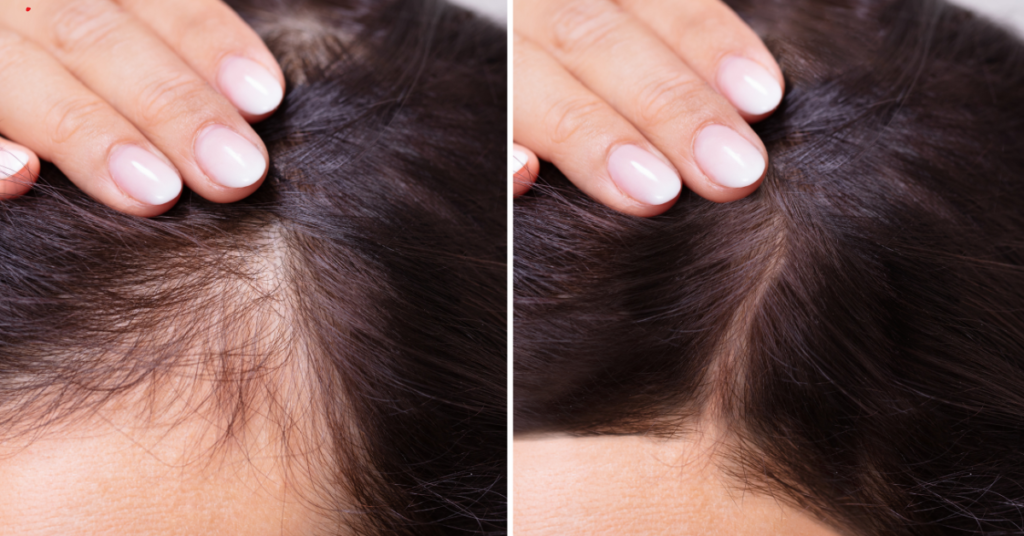Hair loss is more common than most people think. It can happen slowly or all at once. Some notice hair thinning over years, while others see bald patches form in weeks. Either way, no one likes it. The good news is that help exists, and the sooner you do something about it, the better.

Understanding Different Causes of Hair Loss
Hair can fall out for many reasons. Some people lose it because of stress. Others might be going through hormone changes, health issues, or even medication side effects. Then there are those who suffer from conditions like alopecia, where the body starts attacking hair follicles.
While it may seem like a small issue at first, hair loss often gets worse over time. That’s why so many people start looking for real alopecia treatment before the problem becomes permanent.
Looking at Common Solutions
There’s no one-size-fits-all answer to hair loss. Some people benefit from products and pills, others from medical care. In many cases, a combination of options works best.
Hair loss treatments range from simple over-the-counter products to advanced medical options like plasma therapy and laser therapy. If you’re struggling to decide what to do, it’s always a good idea to talk to a hair specialist who understands different types of hair loss and which methods actually work.
A qualified team of hair specialists can help you make a clear plan based on your condition and lifestyle.
When It’s Time to See a Professional
Sometimes home remedies aren’t enough. That’s when people start looking for a hair clinic near me. A proper clinic has the tools and experience to check your scalp, run blood tests, and figure out the root cause of your hair issues.
If your hairline is starting to shift, you might need more than just shampoo. A good hair clinic will explain your options and let you know if you’re a good candidate for a hair transplant or hairline repair. These are popular treatments that give lasting results for people who want a fuller look.
The Role of Trained Hair Experts
There’s a big difference between asking your barber for advice and getting help from a trained hair doctor. These doctors specialise in skin and hair. They can spot the signs early and treat hair loss in ways most people don’t know about.
Some cases are more complicated and might need the help of several hair doctors working together. This often happens with people dealing with immune conditions or genetic problems that lead to bald patches.
For those looking for someone who focuses only on hair and scalp health, a trichologist is also a good option. Searching for a trichologist near me is a smart move if you’re struggling with flaky scalp, itchiness, or sudden thinning.
What About Clinics That Specialise in Hair Loss?
A hair loss clinic can offer many services in one place. From scans that check hair root health to full hair loss treatment plans, these clinics are set up to deal with hair problems every day. Some even offer same-day treatments, while others build long-term plans to keep hair loss under control.
You’ll often see clinics recommend a mix of products and treatments, especially for people dealing with long-term conditions like alopecia. In some cases, these plans fall under what’s known as medical hair restoration, which includes anything from medications to surgical treatments.
Can Hair Be Restored Without Surgery?
Yes, many people are not ready for surgery — and that’s okay. There are lots of alopecia treatments that don’t involve surgery. These include laser devices, growth-stimulating serums, and even scalp massages done with special tools.
Some clinics focus only on non-surgical options, while others offer both. Non-surgical hair restoration tends to work best when caught early. So the sooner you act, the more likely you are to save your hair.
If surgery does become necessary, it’s important to pick a clinic with the right tools and skills for proper medical hair restoration. These treatments aren’t just about moving hair around — they’re also about getting the angles, depth, and natural look just right.
What to Expect From a Hair Transplant
Getting a transplant is not as scary as it sounds. Clinics use advanced tools to take hair from the back or sides of your head and place it in areas that are thinning. The result is a fuller look that’s long-lasting.
Before you book anything, speak to the clinic and look at real results. Good clinics will show examples and explain what kind of result you can expect from your hair transplant.
Many people also ask if they’ll need follow-up treatments. In some cases, clinics suggest basic hair loss treatments to maintain results and boost hair health.
If you’re noticing more hair in the shower drain or your hairline is changing, don’t wait. Whether you’re dealing with everyday thinning or a serious condition, there’s help. Just make sure you speak to the right experts at trusted hair clinics. Acting early makes all the difference.